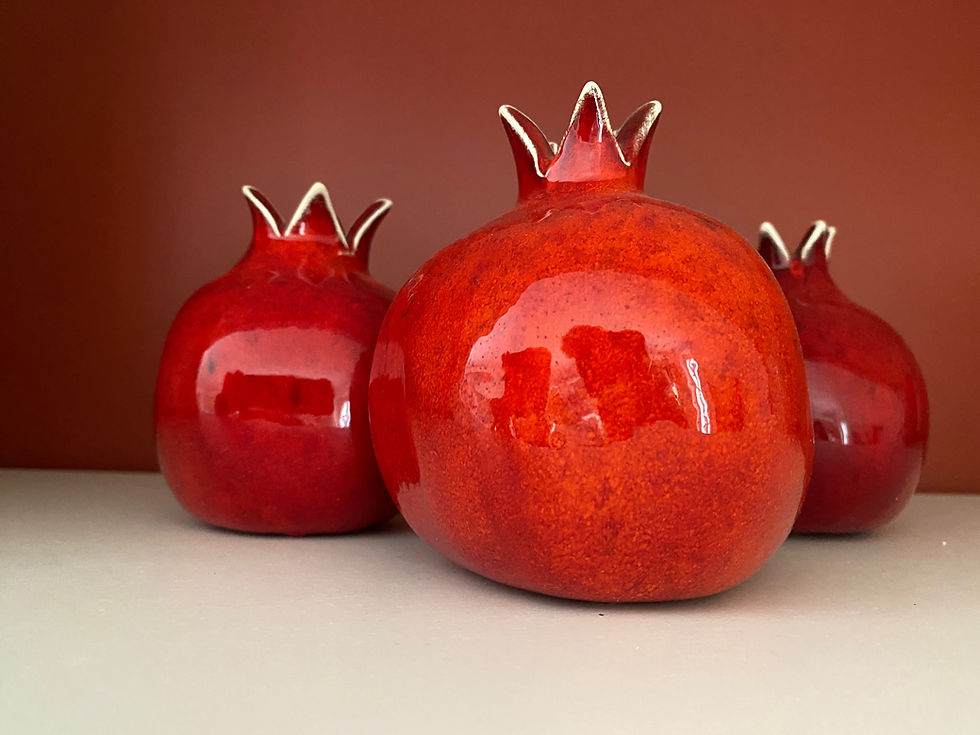Creating Hope
- The Rev. Christopher W. Whiteman
- Mar 11, 2022
- 4 min read
Love is patient; love is kind; love is not envious or boastful or arrogant or rude. It does not insist on its own way; it is not irritable or resentful; it does not rejoice in wrongdoing, but rejoices in the truth. It bears all things, believes all things, hopes all things, endures all things.
Love never ends. But as for prophecies, they will come to an end; as for tongues, they will cease; as for knowledge, it will come to an end. For we know only in part, and we prophesy only in part; but when the complete comes, the partial will come to an end. When I was a child, I spoke like a child, I thought like a child, I reasoned like a child; when I became an adult, I put an end to childish ways. For now we see in a mirror, dimly, but then we will see face to face. Now I know only in part; then I will know fully, even as I have been fully known. And now faith, hope, and love abide, these three; and the greatest of these is love.
–I Corinthians 13:4-13

Dear Friends,
Sometimes my hope feels like a dry, brittle thing. Maybe something like a leaf in the late fall, when the color has been leached out of it and all that is left is a husk devoid of its former glory. Or maybe more like something deflated needing to be refilled: like a beachball that has been kicked around too much or an air mattress that continuously leaks. It is disconcerting when my hope feels like this. I mean, we as Christians are people of new life, of resurrection, of hope; it is at the very core of who we are. So when hope is elusive, we feel lost, despondent, and uncertain.
Normally it is things outside of ourselves that desiccate our hope and frequently these factors are beyond our control. The past two years have abounded with parching and draining energies. If we tried to arrive at a list, perhaps we would include the pandemic, economic hardship and uncertainty, the loneliness of isolation, the ever increasing political divide and turmoil in our country, the loss of routine, the tragedies in our world, and now, we add war and the accompanying atrocities to that list. All of these elements are complicated by the individual struggles, hardships, and losses each of us face in the ordinariness of our daily lives. No wonder our hope can feel dry and brittle.
I have tried infusing new life into my hope through many different ways, including reading inspirational texts, conversations with colleagues, engaging my senses, mindfulness, and through sheer force of will. While I may feel a little bump in my hope, none of these things seem to work. It seems there is always something waiting to steal whatever gains I may have made. I think hope is not something we can force into being.
Earlier this week, I wondered if I had gotten hope wrong; that my understanding of what hope is and how it functions is faulty. Maybe hope is not so much an entity in and of itself, but a secondary virtue arising from another virtue that is more primary. In Paul’s letter to the Christians in Corinth he writes, “And now faith, hope, and love abide, these three; and the greatest of these is love.” In his understanding, love is the paramount virtue, the quality worthiest of cultivating, and somehow connected to hope. Paul declaims, “[Love] bears all things, believes all things, hopes all things, endures all things.” It is love that precedes belief, hope, and endurance. Perhaps, love is the entrance gate to hope that I am searching for.
This is wonderfully good news, because while I cannot force hope into being ex nihilo, I can choose to love, to act in love, and to be love and I know how to do that. What if we shift our attention from a deficit of hope towards love? These are concrete actions we can take; things we can accomplish right now. We can love God now, we can love our neighbor now, we can love the stranger now, and then hope will follow. In our communion with God and each other our hope is rehydrated and given new life. Love, which originates in God and flows through us to the world around us, resurrects the deflated hope part of ourselves.
This week when my hope feels dry, brittle, and deflated, I am going to choose love. Instead of wallowing in despondency, I am committed to doing something in love and being love for those around me. I invite you to join me in this practice of intentionally responding to a lack of hope with love accompanied by the prayer that we will find hope again. Of course, maybe your hope is robust, lively, and full at the moment, and if that is the case, I invite you along this journey anyways. It is through love that we share our hope for the sake of the world following in the footsteps of Christ.
This week, may God bless you in all that you do and in all that you are.
In Christ,
Christopher+
Photo credit: By Matthew Walton - Imported from 500px (archived version) by the Archive Team. (detail page), CC BY 3.0, https://commons.wikimedia.org/w/index.php?curid=71314871








Comments